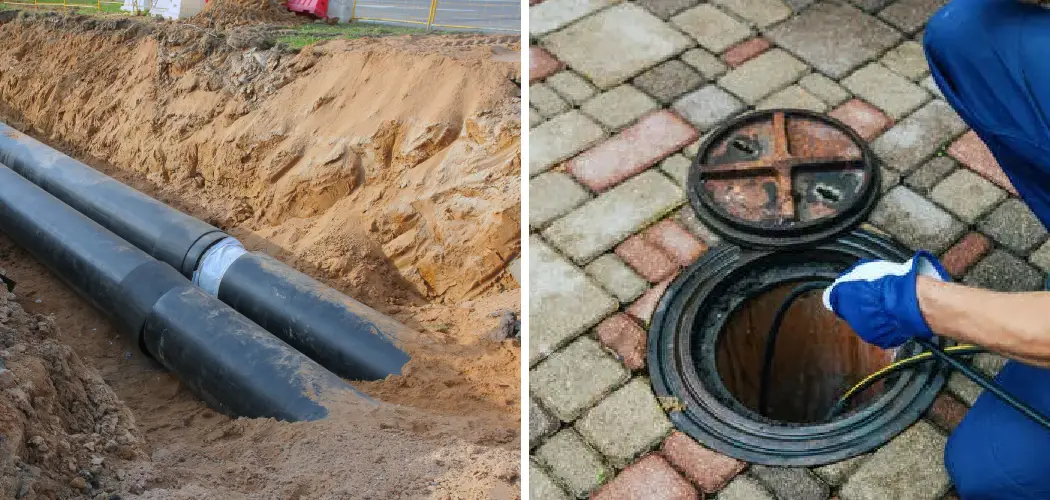It’s important to maintain an efficient plumbing system in your home for its longevity and to keep your household clean and safe. When it comes to plumbing, keeping sewage pipes clean is essential in ensuring that they don’t become blocked with dirt or debris, leading to potential problems further down the line.
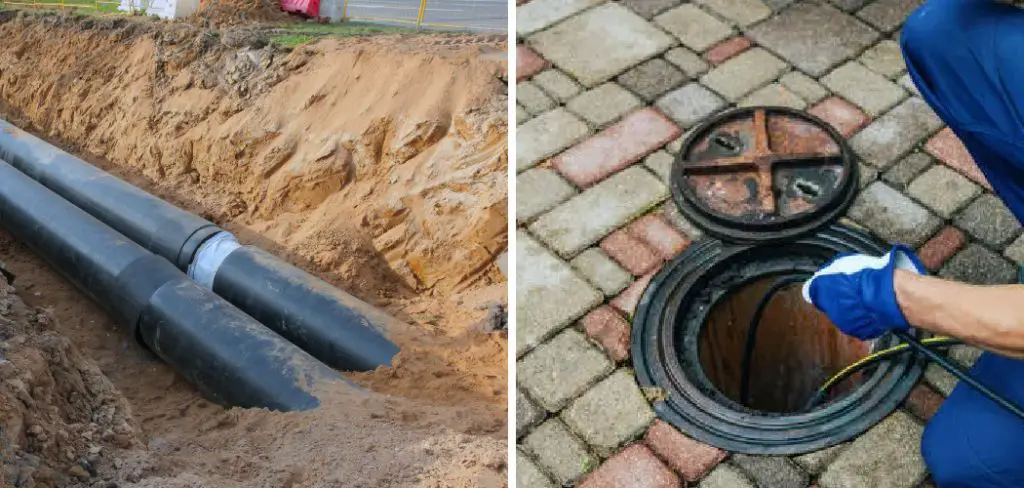
In this blog post, we will explore how to keep sewage pipes clean at their best while helping prevent costly repairs. You’ll learn some of the tried-and-tested methods used by professional plumbers when unclogging stubborn blockages as well as a few tips you can use yourself at home. Read on for all the information you need!
10 Best Ways on How to Keep Sewage Pipes Clean
1. Avoid Flushing Inappropriate Items:
Flushing inappropriate items such as baby wipes, sanitary products, dental floss, and other similar items can cause blockages in your sewage pipes. These items can easily get stuck in the pipes and accumulate over time, creating a stubborn blockage that may be difficult to remove. Make sure you only flush waste and toilet paper down the toilet.
2. Use a Drain Strainer:
g is an effective and easy way to prevent debris, hair, and other particles from entering your sewage pipes. Place the strainer over your drains in the bathroom and kitchen to collect any waste that may cause blockages. Using a strainer will help reduce the chance of clogs and keep your pipes clean.
3. Regularly Clean Your Drains:
It’s essential to regularly clean your drains by flushing them with hot water or using a store-bought drain cleaner. This will help remove any buildup of grease, soap scum, hair, and other debris that may be blocking your pipes. If you notice that your drains are draining slowly, it may be a sign that they need cleaning, and make sure to act swiftly before it escalates into a more significant issue.
4. Don’t Pour Grease Down Your Drains:
Pouring grease, fats, and oils down your drains can be a recipe for disaster. These substances can easily solidify inside your pipes, causing blockages that are difficult to remove. Instead of pouring them down the drain, dispose of them in a separate container and throw them into the trash. If you have a garbage disposal unit, avoid putting grease and oils into it as well.
5. Use Baking Soda and Vinegar:
A tried-and-tested method for keeping sewage pipes clean is by using baking soda and vinegar. Pour half a cup of baking soda down your drain followed by one cup of vinegar. Let the mixture sit for an hour before flushing with hot water. Repeat this process once a month to keep your pipes clean and odor-free. Using this natural method is not only effective but also eco-friendly.
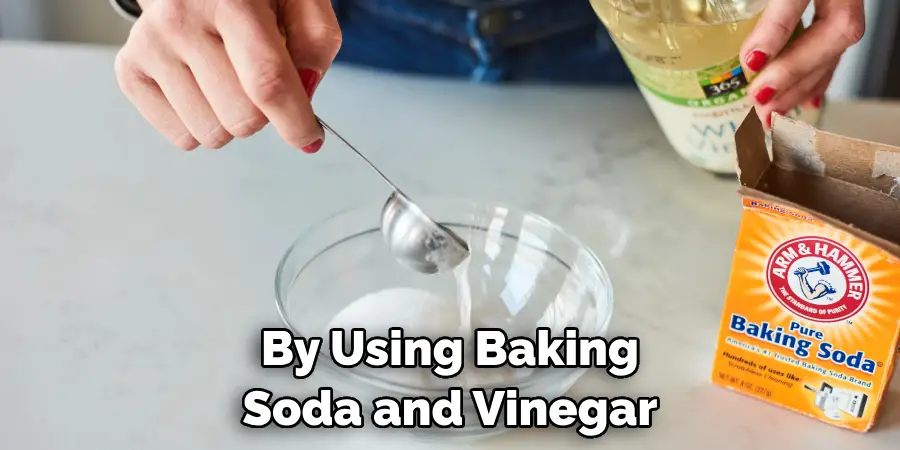
6. Invest in a Plumber’s Snake:
If you’re dealing with a stubborn blockage, it may be time to invest in a plumber’s snake. This tool is used by professional plumbers to remove clogs from sewage pipes effectively. It works by inserting the flexible wire into the pipe and maneuvering it around until the blockage is cleared. With a bit of patience, you can save time and money by using this tool instead of calling a plumber. Investing in a plumber’s snake is also handy for future clogs.
7. Use Enzyme Cleaners:
Enzyme cleaners are natural and environmentally friendly products that help break down organic materials in your pipes. These cleaners will not harm your plumbing system and are safe to use regularly. Simply pour them down your drains, and they will work to break down any buildups that may cause blockages. Using enzyme cleaners is a preventative measure to keep your pipes clean and running smoothly.
8. Install a Backwater Valve:
Installing a backwater valve is an excellent investment for preventing sewage backflow into your home. This device is installed on the main sewer line and automatically closes if there is excess water or sewage trying to enter your home. This will help keep your pipes clean and prevent any potential health hazards. Installing a backwater valve may require professional help, so make sure to consult with a plumber.
9. Get Regular Inspections:
Getting regular inspections from a professional plumber is crucial in keeping your sewage pipes clean and functioning correctly. A plumber can spot any potential issues before they become significant problems and offer advice on how to maintain your plumbing system properly. It’s recommended to have your pipes inspected once a year to ensure they are in good condition.
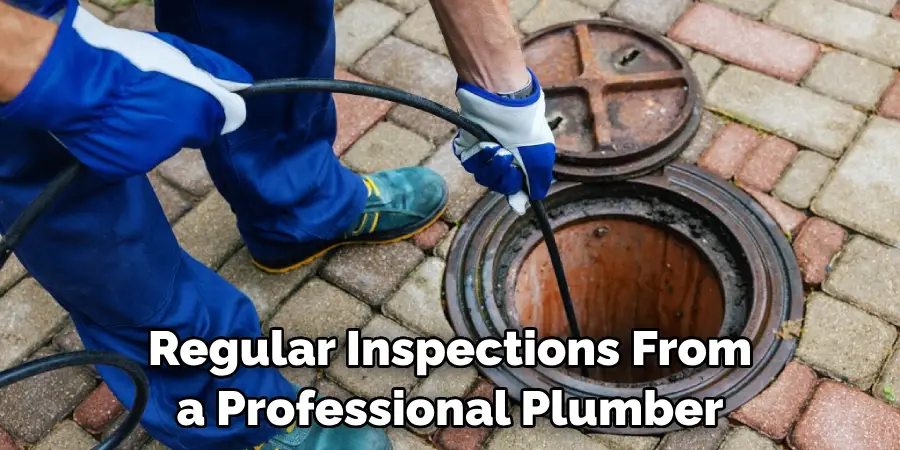
10. Act Quickly:
Lastly, it’s crucial to act quickly when you notice any signs of a clogged sewage pipe. Ignoring the issue and hoping it will go away on its own can lead to more costly repairs and potential health hazards. If you’ve tried all the methods mentioned above and still can’t unclog the blockage, it’s best to call a professional plumber who has the necessary tools and expertise to fix the problem. Remember, prevention is always better than cure.
Following these ten tips on how to keep sewage pipes clean will not only help prevent blockages and unpleasant odors but also save you time, money, and potential health hazards. It’s essential to maintain your plumbing system regularly and address any issues promptly to ensure its longevity.
By incorporating these methods into your household routine, you can keep your sewage pipes running smoothly and efficiently for years to come. Always remember, a little maintenance goes a long way in keeping your pipes clean!
Additional Tips and Tricks to Keep Sewage Pipes Clean
- If you have a clog in your sewer line, avoid using chemical drain cleaners to try and clear it. These harsh chemicals can actually damage your pipes and cause even more problems.
- Instead, use an eco-friendly alternative by pouring a mixture of baking soda and vinegar down the drain. The combination will create a foaming reaction that can help break up clogs without causing any damage.
- To prevent clogs in the first place, be mindful of what you flush down your toilet and drain. Avoid flushing items such as wet wipes, cotton swabs, and feminine hygiene products, as these can easily get stuck in your pipes.
- Properly dispose of cooking grease and oil by wiping it up with a paper towel and throwing it in the garbage. Never pour grease down your drain as it can solidify and cause clogs.
- Consider installing a hair catcher in your shower or bath drain to prevent hair from accumulating and causing clogs.
- Regularly clean out your sewer line by using a plumbing snake or auger to remove any buildup or obstructions.
- If you notice any slow draining or foul odors coming from your drains, it could be a sign of a clog or buildup. In this case, call a professional plumber to inspect and clean your sewer line.
- Avoid planting trees or shrubs near your sewer lines as their roots can grow into the pipes and cause damage.
- If you have a septic system, make sure to have it regularly inspected and pumped to prevent any backups or issues with your sewage pipes.
- Finally, educate everyone in your household on proper plumbing practices to ensure that everyone is doing their part in keeping the sewage pipes clean and free of clogs.
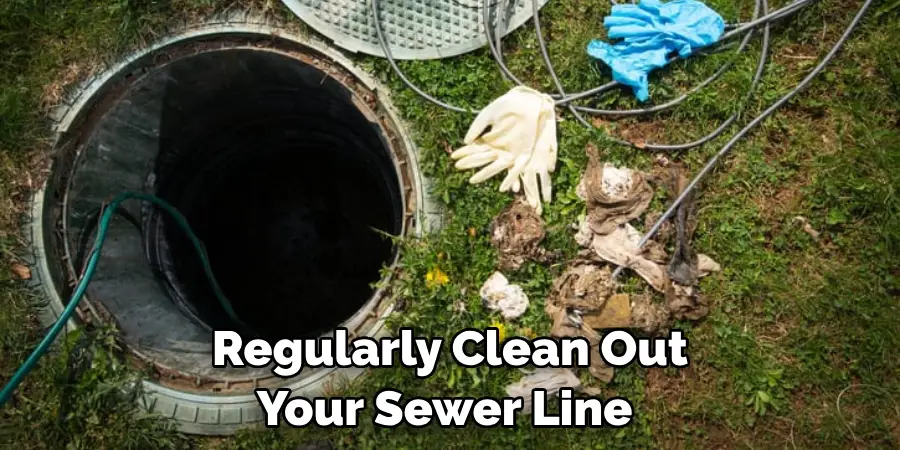
Following these tips and tricks can help keep your sewage pipes clean and running smoothly, saving you from costly repairs and inconveniences in the future. Remember to always be mindful of what goes down your drains and address any issues promptly to maintain a healthy and efficient plumbing system.
Your efforts will not only benefit you but also the environment by reducing the use of harmful chemicals and preventing clogs in the city’s sewage system. Keep your pipes clean and happy plumbing!
Things You Should Consider to Keep Sewage Pipes Clean
1. Install a Grease Trap:
A grease trap is an essential device that helps to prevent fats, oils, and grease from entering your sewage pipes. These materials can solidify and cause blockages in the pipes, leading to serious problems in the long run. By installing a grease trap, you can effectively reduce the amount of grease that goes into your sewer system, thus keeping your pipes clean.
2. Dispose of Waste Properly:
It is crucial to dispose of waste properly to prevent clogging in sewage pipes. Flushing non-biodegradable items such as paper towels, sanitary products, and wipes can cause serious blockages and damage to the pipes. These items do not break down easily and can accumulate over time, leading to expensive repairs. Make sure to dispose of waste in the designated bins or containers to keep your sewage pipes clean.
3. Regular Maintenance:
Regular maintenance is key to keeping your sewage pipes clean and functioning properly. Schedule routine inspections by a professional plumber to check for any potential issues, such as cracks, leaks, or blockages. They can also provide necessary cleaning services to keep your pipes in top condition. It is recommended to have your sewage pipes inspected and cleaned at least once a year.
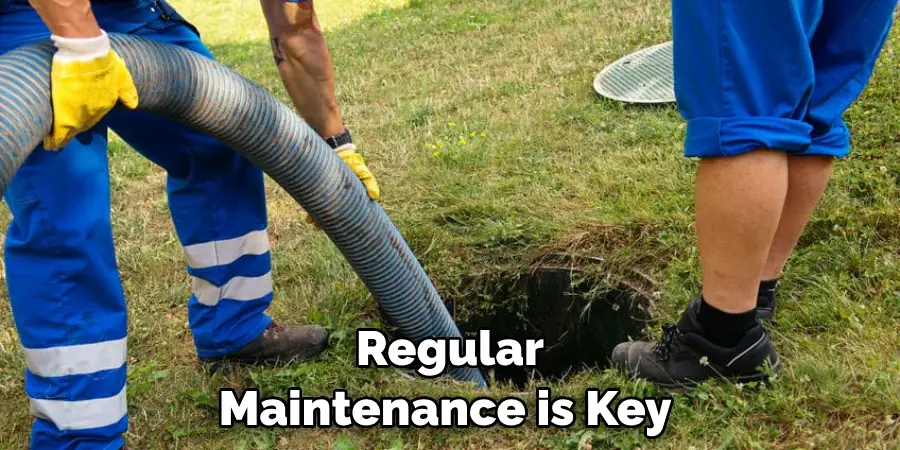
4. Avoid Chemical Drain Cleaners:
Chemical drain cleaners may seem like an easy and quick solution to clear clogged drains, but they can cause more harm than good. These harsh chemicals can erode the pipes over time and lead to costly repairs. Instead, opt for natural alternatives such as hot water, baking soda, or vinegar to unclog your drains without damaging your sewage pipes.
5. Plant Trees Away from Sewage Pipes:
Tree roots are one of the main culprits for clogged and damaged sewage pipes. As trees grow, their roots can extend and find their way into small cracks in the pipes, causing blockages and leaks. To prevent this, make sure to plant trees at least 10 feet away from your sewage pipes. If you already have trees near your pipes, consider having them regularly trimmed to avoid any potential issues.
Following these considerations can help you maintain clean sewage pipes and prevent costly repairs in the future. By taking proper care of your pipes, you not only ensure a healthy and functional sewer system but also contribute to protecting the environment by avoiding potential sewage leaks.
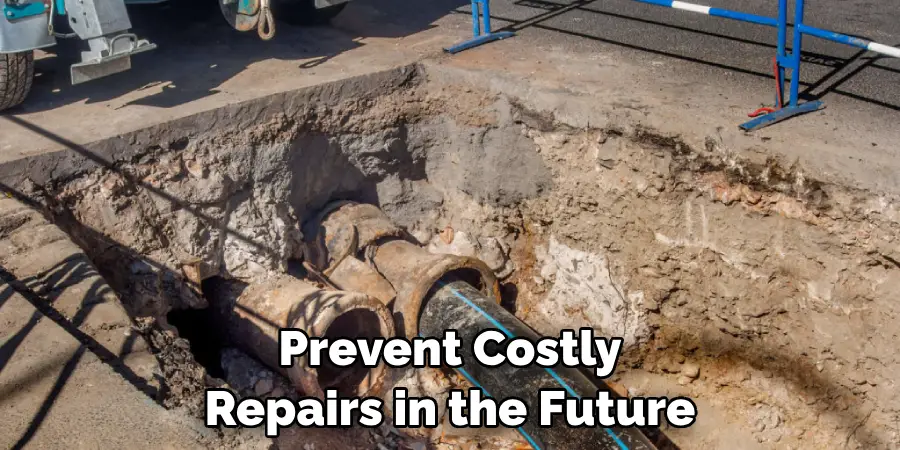
Remember, prevention is always better than cure when it comes to keeping your sewage pipes clean. So, make sure to follow these tips for a trouble-free sewage system. Stay clean, stay healthy!
Frequently Asked Questions
Why Do Sewage Pipes Get Clogged?
Sewage pipes can become clogged due to a variety of reasons, including buildup of debris and waste, tree root infiltration, pipe damage, or improper disposal of items such as grease and oil. Lack of regular maintenance and cleaning can also contribute to clogging.
How Often Should Sewage Pipes Be Cleaned?
It is recommended to have sewage pipes cleaned at least once a year, depending on the amount of use and potential for clogs. However, in areas with high levels of rainfall or trees with deep roots, more frequent cleaning may be necessary. Regular maintenance can prevent costly repairs and keep your sewage system running smoothly.
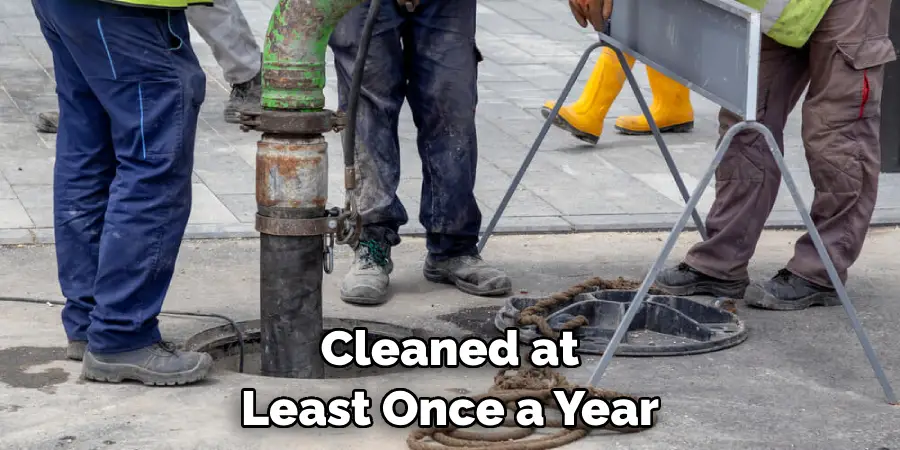
What Are Some Signs of a Clogged Sewage Pipe?
Some common signs of a clogged sewage pipe include slow draining or standing water in sinks, toilets, and showers; foul odors coming from drains; gurgling sounds when using plumbing fixtures; and multiple clogs occurring at the same time. If you notice any of these signs, it is important to address the issue immediately to prevent further damage.
What Can I Do to Prevent Clogged Sewage Pipes?
To prevent clogs, it is important to be mindful of what you flush down your drains and toilets. Avoid disposing of items such as grease, oil, paper towels, feminine hygiene products, and baby wipes in your sewage system. Regularly cleaning and maintaining your pipes can also help prevent clogs from forming.
What Are Some Benefits of Keeping Sewage Pipes Clean?
By regularly cleaning and maintaining your sewage pipes, you can prevent clogs and backups that can lead to costly repairs. Additionally, a properly functioning sewage system is essential for the health and safety of your household. It also helps keep the environment clean and prevents contamination of water sources.
Conclusion
Keeping your sewage pipes clean is essential to maintaining a healthy home and preserving the environment. The best way to keep them in good shape is by taking proactive steps, such as scheduling inspections annually, watching for signs of clogs or other damage, and getting repairs done if needed. It’s also important to avoid dumping illegal substances down your drains and closely monitor what goes down the pipes.
Adopting these maintenance practices now can save you from costly plumbing repairs later. Keeping your home’s sewage system well-maintained will help ensure that it runs effectively today, tomorrow, and in years to come. Now that you have the basic information on how to keep sewage pipes clean, what are you waiting for? Put this knowledge into practice today and reap the long-term benefits!

